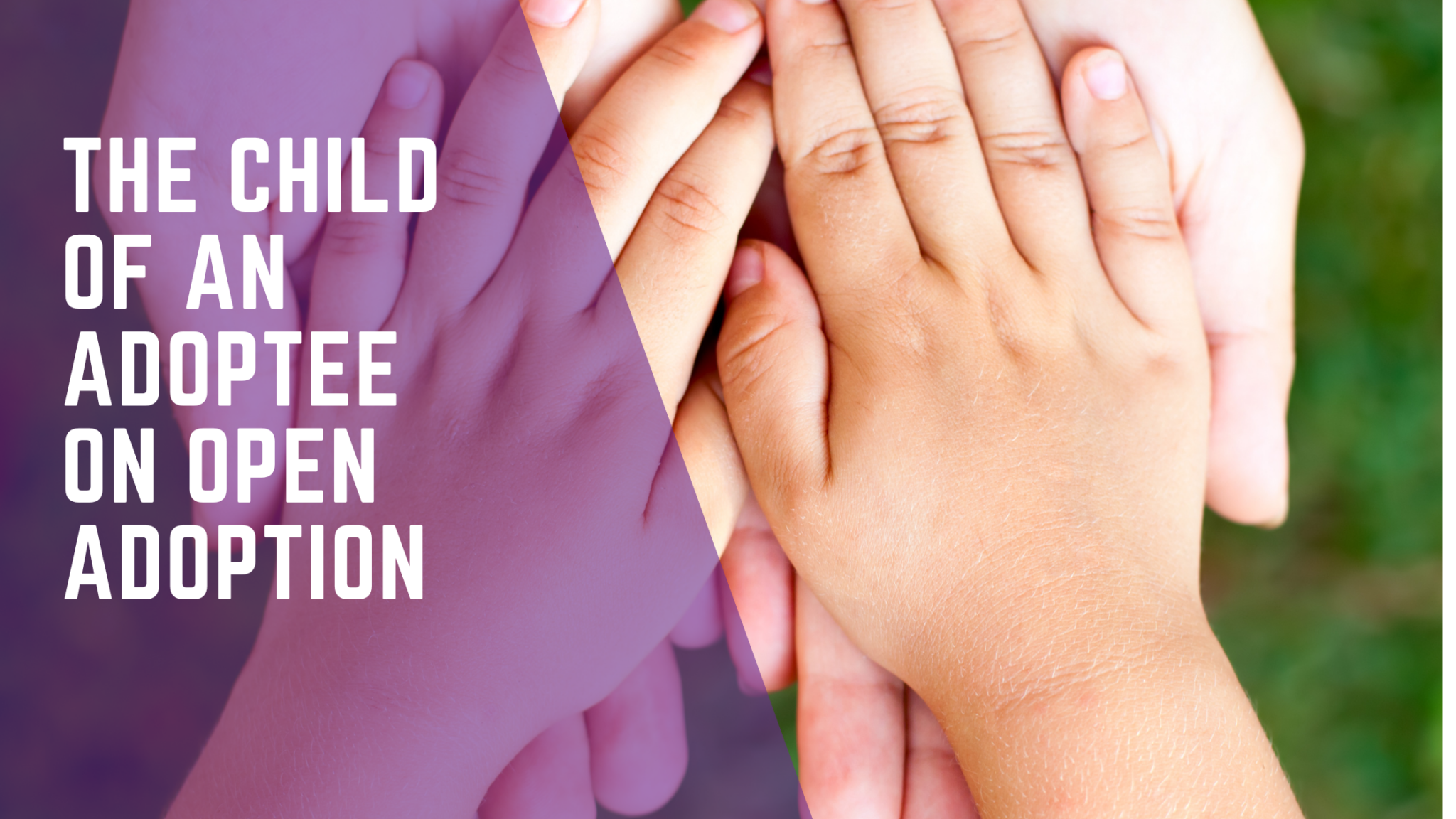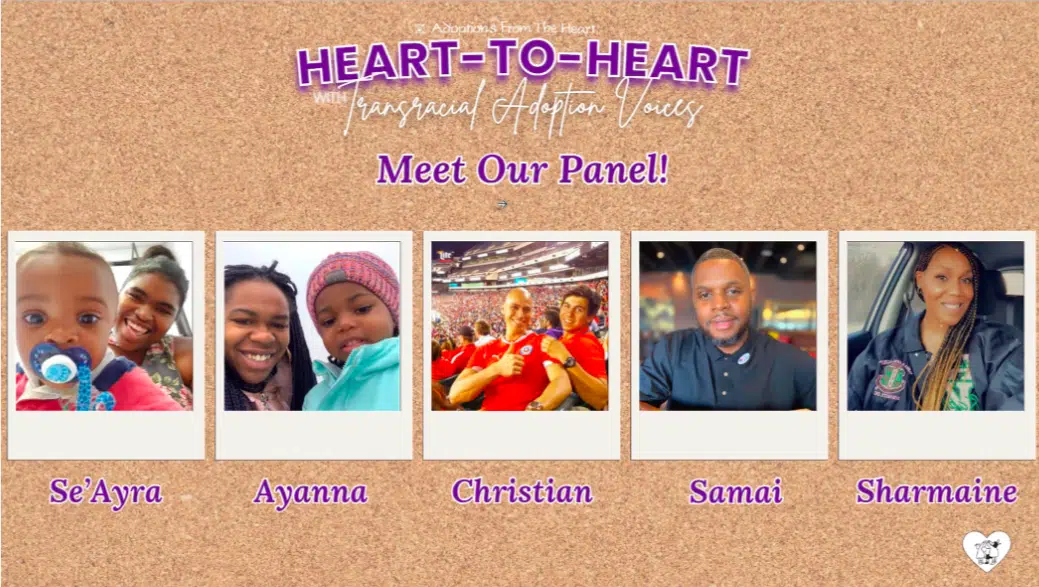This is another topic we learned about in a Human Rights Campaign webinar. The All Children All Families initiative aims to achieve safety, permanency, and well-being by improving practice with LGBTQ youth and families. AFTH is proud to be a supporter of the LGBTQ community and we will be sharing some of the information provided by the Human Rights Campaign Foundation in addition to insight we have gained from being a part of the initiative. Today we are diving into some common misconceptions about LGBTQ parents. These scenario s where provided to us by HRC:
Misconception #1: Children need a mother and father.
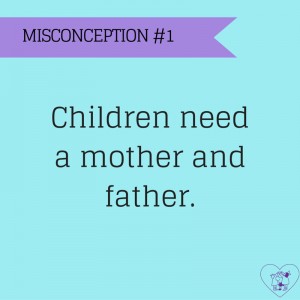
Counter position
- Studies show equally good outcomes for children of gay or lesbian parents as those with a mother and a father.
- Studies that claim unfavorable outcomes for children of single parents compare those children to children of married heterosexual parents.
- These studies say nothing about the gender of the absent parent being the cause of the unfavorable outcomes.
- Besides all of this, there are more waiting children than there are heterosexual couples coming forward to adopt!
- Agencies place children in foster care in non-married or single parent households all the time. Estimates for 2005 and 2006: over 30% of adoptive families are unmarried couples or single people, with over 25% single women!
Misconception #2: Gay people cannot provide stable homes.
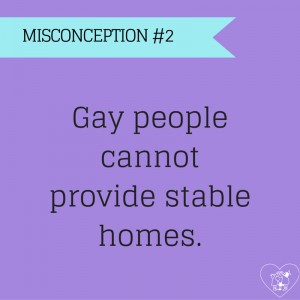
Counter-Position
- No study has found anything unstable about the families created by gay and lesbian people. Literature & studies show that gays & lesbians can have long lasting relationships, and that these relationships are equal to heterosexual couples in terms of overall quality, satisfaction, and level of conflict.
- Other claims of “instability” revolve around harmful and erroneous assumptions that gay people suffer from drug abuse and psychiatric disorders. There is no basis to this generalization.
- Most importantly, the home-study process is meant to screen out families—any kind of family—with these areas of concern on a case-by-case basis.
Misconception #3: Gay people pose a risk of child sexual abuse.
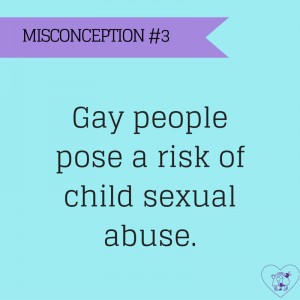
Counter-Position
- There is simply no basis behind this harmful and pervasive claim.
- Studies show gay men are no more likely to be attracted to, or sexually abuse, children than their straight counterparts.
- Research has shown that many pedophiles have no sexual attraction to adults.
- The one frequently cited “study” to support this awful myth is by anti-gay activist Paul Cameron, whose research has been discredited by the larger research community because of his distortion of gay people.
Misconception #4: Being raised by gay parents will cause kids to be gay.
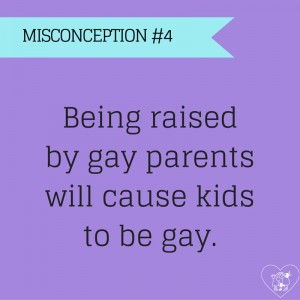
Counter-Position
- People don’t choose who we are attracted to. Likewise, no one else can dictate our attractions—not even our parents. We certainly learn things about sexuality and relationships from observing our parents and other couples in society, but our own sexuality isn’t something we learned or have much, if any, control over.
- Not much is known about why people are gay or not, but it’s pretty clear that children’s sexual orientation is not determined by the sexuality of their parents. In fact, most gay people were raised by straight parents, and the large majority of children of gay parents grow up to be straight.
Misconception #5: Kids of gay parents will get picked on.
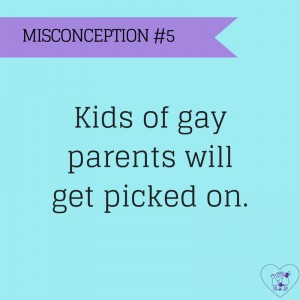
Counter-Position
- Kids of gay parents WILL get picked on and so will all other kids regardless of their parents’ sexual orientation.
- If it weren’t about their parents being gay, it would be about something else.
- One study has shown that when kids of gay parents were teased it was more likely to be about their parents being gay, but they were not teased more than other kids overall.
- If we were going to make this argument against placing children with gay families, what type of other families could we make the same argument? What would happen if we stopped placing children with all families who are in any way “different”?
- If a child is being bullied because of her race or for living in a single-parent household, is it common practice to reprimand that child and/or that child’s parent(s)? Or is a better practice to reprimand and educate the bully and possibly the bully’s parents?
Focus on Strengths of LGBTQ Parents
HRC also outlined for us some of the strengths that LGBTQ has. As an adoption agency we are allies with LGBTQ parents and do our best to spread messages about these strengths. There are many more, but these are some of the strengths of LGBTQ parents:
- LGBTQ people may have an understanding of what it is like to undergo a deep exploration of one’s identity—what it feels like on the inside and what it means out in the world. Foster children often experience a similar questioning of who they are and where they belong in the world.
- LGBTQ people have a lot of experience with the decision between being closeted and coming out, just as foster children have to constantly decide whether or not to come out as being in foster care (and how to do that).
- LGBTQ people likely have experience with discrimination, being a member of a marginalized group, similar to children in care.
- LGBTQ people may have experience with family conflict, loss, and/or difficult family relationships, which could help them help children to navigate similar challenges.
- Some LGBTQ people lack relationships with LGBT people from older generations within their families (few role models), and have had to find those supports outside of their family networks. Foster children might also lack access to family members from older generations or a lack of role models (foster care alumni), and could also benefit from finding connections to older adults who share similar experiences.
- Lesbian, gay, and bisexual people may know what it’s like to experience shame around their sexuality, which is relevant to the many children who have experienced sexual trauma/abuse.
- LGBTQ people have often learned resilience and resourcefulness in creating support networks and family-like communities, whether or not their family relationships have been affected by their coming out. These skills are invaluable to children who are in need of developing family connections and supports outside of their biological family units.
- LGBTQ people may display significant open-mindedness and a deep appreciation for the importance of unconditional love and acceptance, which could be helpful in supporting a foster child’s individuality.

